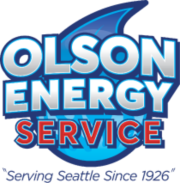-
FAQs and Answers About Germicidal UV Lamps
If you’re concerned about the quality of the air inside your Seattle home, talk to an HVAC professional about germicidal UV lamps. These lamps are designed to eradicate many of the contaminants that take up residence inside your air conditioning vents , allowing you to breathe cleaner and healthier air at home. You may be wondering, however, just how effective these UV lamps really are. Here are some of the most commonly asked questions about germicidal UV lamps—and the answers.
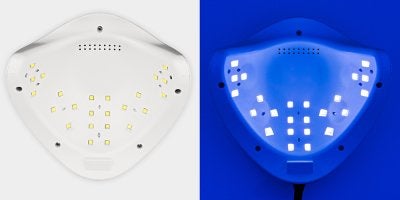
How do UV lamps work? UV lamps emit ultraviolet light, which damages the DNA inside organic pollutants such as bacteria, viruses, and mold spores. When they are aimed at a certain area, UV lamps can kill as much as 99.9% of the organic contaminants in that area.
Do UV lamps work on all pollutants? UV lamps will not eliminate dust, pollen, and other non-organic pollutants. To keep your air conditioning vents clean, you should still be sure to invest in routine cleaning and maintenance from an HVAC professional.
Will I notice my UV lamps at work? The answer is most likely no. UV lamps are silent, and they emit no odor. You probably won’t even notice your lamps at work. Be careful, however, never to look directly at a UV lamp—ultraviolet light is extremely dangerous to your eyesight.
Do UV lamps require any maintenance? You can have your UV lamps checked during your routine HVAC inspections to ensure that they’re working properly. HVAC professionals generally recommend that you replace the bulbs on an annual basis.
Who can benefit from using UV lamps? Clean air is important for everybody, but it may be most important for young children, the elderly, and people who have compromised immune systems. Minimizing exposure to bacteria, viruses, and other hazardous contaminants can make a significant difference in the lives of people who are more vulnerable to illness.
-
Tankless Water Heaters to Consider for Your Home
Tankless water heating has surged in popularity in recent years as homeowners across the globe seek energy-efficient and space-saving solutions for their households. With a broad range of options available, you may be unsure which tankless water heater is best. Follow this guide to help you understand the fundamentals, weigh the pros and cons, and consider the types of tankless water heaters for your home.
How Do Tankless Water Heaters Work?
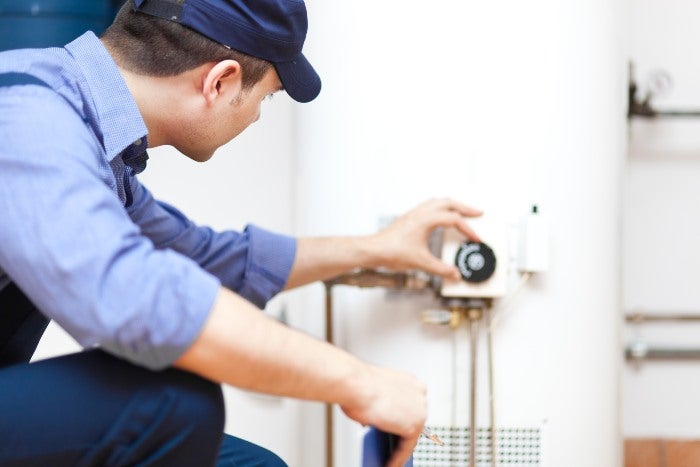
Unlike conventional storage tanks that maintain a large volume of hot water, tankless water heaters generate hot water on demand. They use high-powered gas burners or electric elements to rapidly heat water as it flows through the unit, delivering freshly heated water directly to your faucet without storing it in a tank. This on-demand functionality is highly efficient, space-saving, and eco-friendly.
Pros and Cons of Tankless Water Heaters
Before you decide to switch to a tankless water heater, carefully weigh the pros and cons of this technology.
Pros
- Efficiency and savings: Tankless water heaters only operate when needed, making them highly energy efficient. In fact, they reduce energy consumption by an average of 24 to 34 percent, leading to significant utility savings.
- Longevity: Tankless water heaters are designed for durability, with a lifespan of up to 20 years—around double that of traditional tank models. This longer operational life adds to your long-term savings.
- Small installation footprint: Unlike bulky tank water heaters, tankless units are compact and can be wall-mounted indoors or outdoors, providing more installation flexibility. This frees up valuable space in your home, making tankless units particularly advantageous for smaller residences.
- Continuous hot water supply: Because tankless units provide hot water on demand, you never run out, even after extended usage. This ensures a constant supply of hot water for endless back-to-back showers.
Cons
- Higher initial costs: Tankless water heaters cost more to purchase and install than traditional models. The potential need to upgrade your electrical system or ventilation setup adds to the upfront costs. Even so, the ongoing energy savings and long lifespan of tankless water heaters can offset the higher upfront costs, making them a financially sound investment.
- Limited output: While they provide continuous hot water, tankless heaters struggle to keep up if multiple taps are in use simultaneously. This reduced flow rate could be problematic for large households or homes with high simultaneous hot water demand.
- Inconsistent temperatures: If you shut off the water or lower the flow rate to a trickle, the tankless unit turns itself off. This means when you restore the hot water flow, the temperature may drop before it becomes hot again. This inconvenient phenomenon, called a “cold-water sandwich,” may still be worth it to enjoy significantly more efficient water heating.
Types of Tankless Water Heaters
Even within the category of tankless water heaters, you have a few styles and fuel types to choose from:
- Whole-house tankless water heaters are robust enough to cater to the hot water needs of an entire household. They are installed in a central location, often where your old water heater was installed, and service every faucet and fixture in your home.
- Point-of-use tankless water heaters supply hot water to a single point, such as a bathroom or a kitchen sink. They are compact and easy to install within the cabinet or high on the wall. This can be a cost-effective solution for adding hot water functionality to specific parts of your house while eliminating the wait time for hot water.
- Electric tankless water heaters are easy to install because they don’t require ventilation. However, they may draw substantial power, calling for an electrical system upgrade in some cases. These units are generally well-suited for smaller homes or point-of-use applications.
- Natural gas tankless water heaters are more powerful than electric models, capable of supplying larger volumes of hot water. However, they require proper ventilation to ensure safe operation, which limits where they can be installed.
- Thermostatically controlled tankless water heaters are sophisticated models that use flow-based power modulation to maintain a more precise temperature despite changes in flow rate. This makes every shower more comfortable and helps prevent scalding at the tap, a significant benefit in homes with young children or older adult residents.
Tankless Water Heater Solutions in Seattle, WA
Olson Energy Service is a trusted name in HVAC, electrical, and plumbing services. We have been serving Seattle since 1926 as a family-owned and operated business. Our skilled and experienced technicians can help you select a tankless water heater and conduct a professional installation, ensuring your complete satisfaction for years to come. If you’re ready to go tankless, please call us today at 206.782.5522 or contact us online to request tankless water heater services in Seattle, WA.
-
Our Emergency AC Repair Services in Seattle, WA
No Seattle homeowner ever wants to be left without a working air conditioner when the summer is at its hottest. That’s why it’s essential to have an air conditioning contractor you can always depend on to provide you with capable service in a crisis. At Olson Energy Service , we offer emergency HVAC service 24 hours a day, seven days a week, to customers in the Seattle area. If you’re experiencing any issues at all with your air conditioning system, our expert technicians can diagnose the problem and repair it in short order. Our team has experience responding to a wide array of HVAC problems, from failed compressors to cracked refrigerant lines. We offer preventative maintenance services to help extend the life of your AC system, and we’ll also be happy to replace your current system with a brand-new one. When you’re having trouble with your AC system, don’t hesitate to contact our team for immediate assistance.
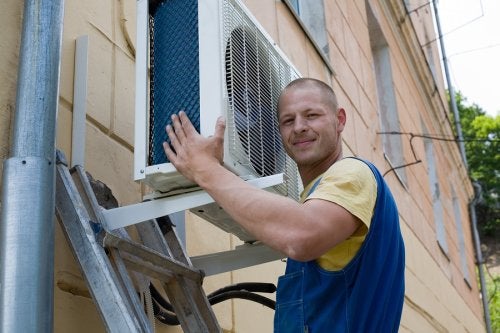
-
Does Your Home Have a Hardwired Smoke Detector Yet?
In order to protect yourself and your loved ones against the dangers of a household fire, it is critical to install smoke detectors throughout your home. A contractor that repairs boilers and air conditioners serving Seattle can also provide you with a new smoke detector installation. To improve the safety and reliability of your smoke detectors, it may also be a good idea to talk to your HVAC contractors about the possibility of choosing a hardwired smoke detector.
A hardwired smoke detector offers many benefits to your household. Unlike battery-powered smoke detectors, which will cease to function if their batteries run out of power, hardwired smoke detectors are connected to the main electrical grid of your property. Whether your fire has been caused by a furnace problem or another type of emergency, your hardwired smoke detector will immediately alert you to the presence of fire dangers. Since hardwired smoke detectors also contain battery backups, they will function properly with or without power from your home’s electrical system.
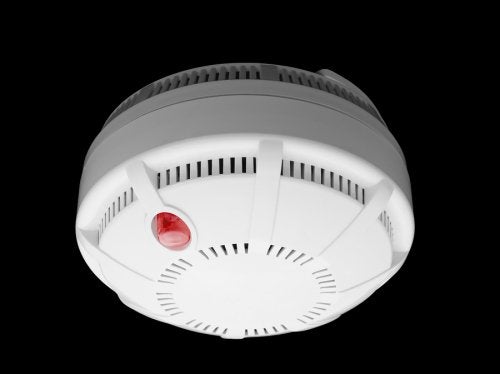
““
RECENT POSTS
categories
- Uncategorized
- Air Conditioner
- Fireplace Inserts
- Fireplace Insert Installation
- Air Conditioning Installations
- Air Conditioning Units
- Air Conditioner Maintenance
- HVAC Professionals
- Heat Pump Installation
- Heating and Cooling
- HVAC Unit
- Heat Pumps
- Furnace
- Furnace Service
- Tankless Water Heaters
- Water Heaters
- Energy Efficiency
- HVAC Contractors
- Olson Energy Service
- Mini-Split Systems
- Ductless Air Conditioner
- Residential Services
- Seasonal Boiler Maintenance
- HVAC Maintainance
